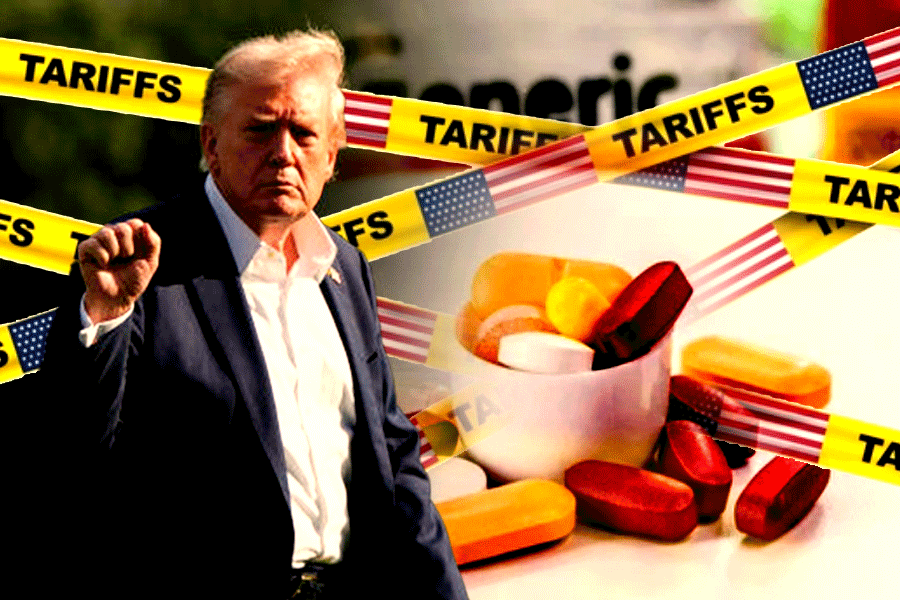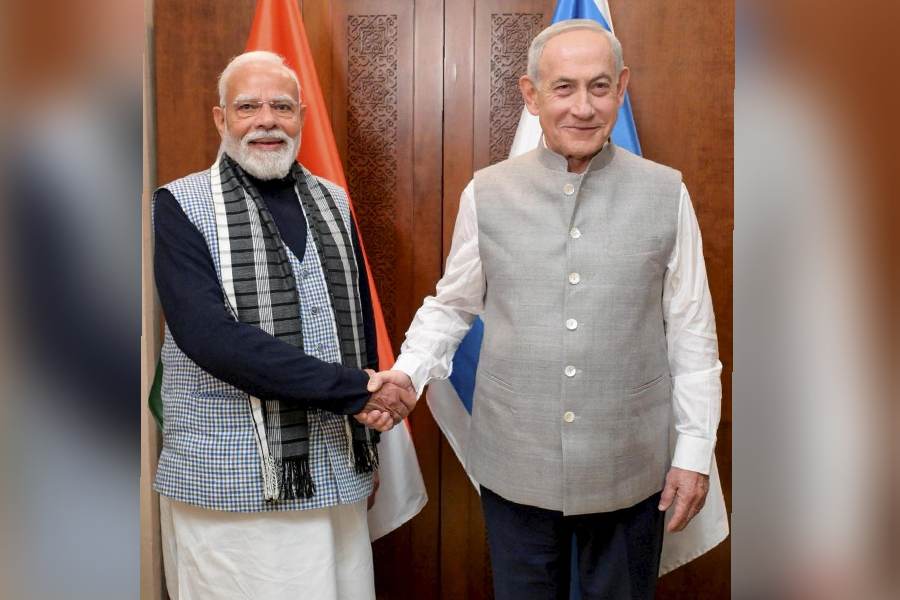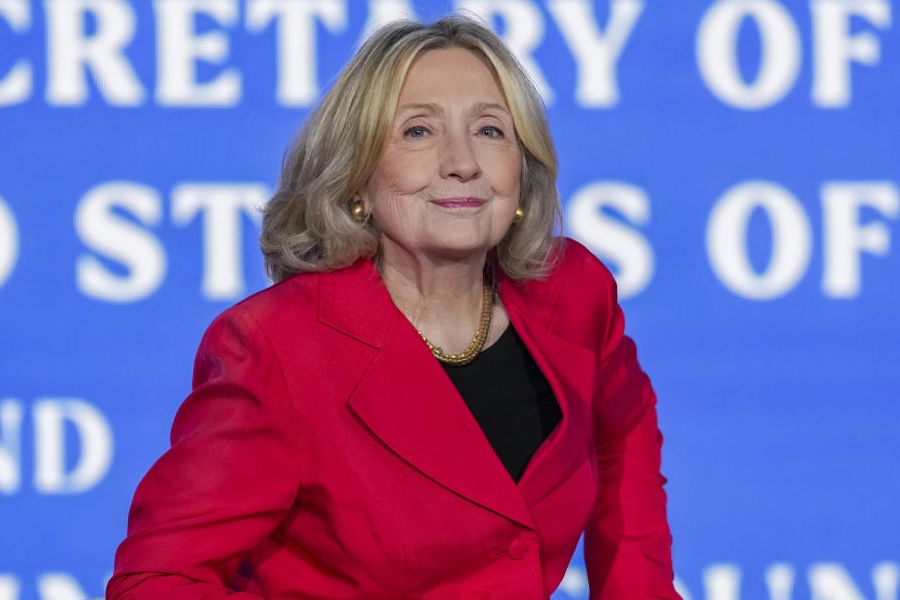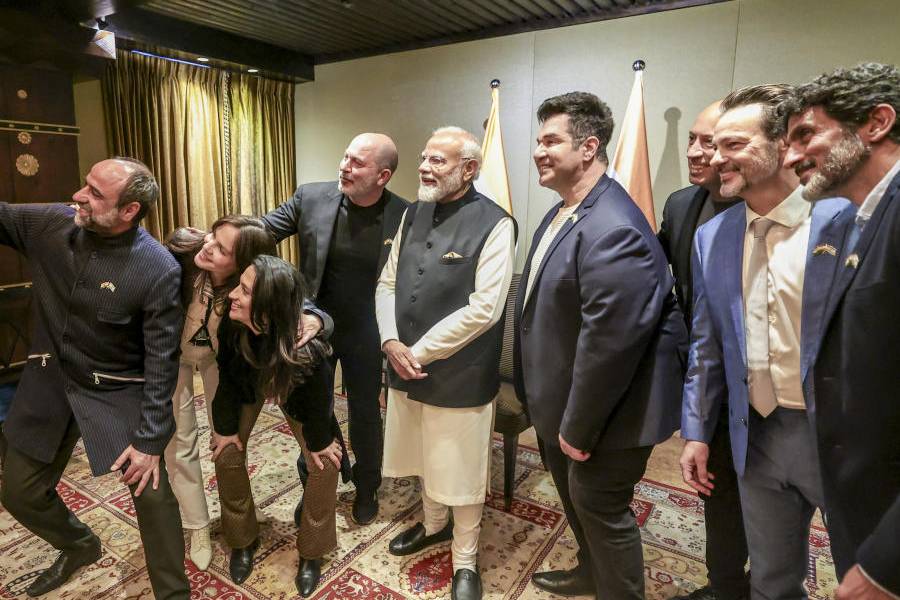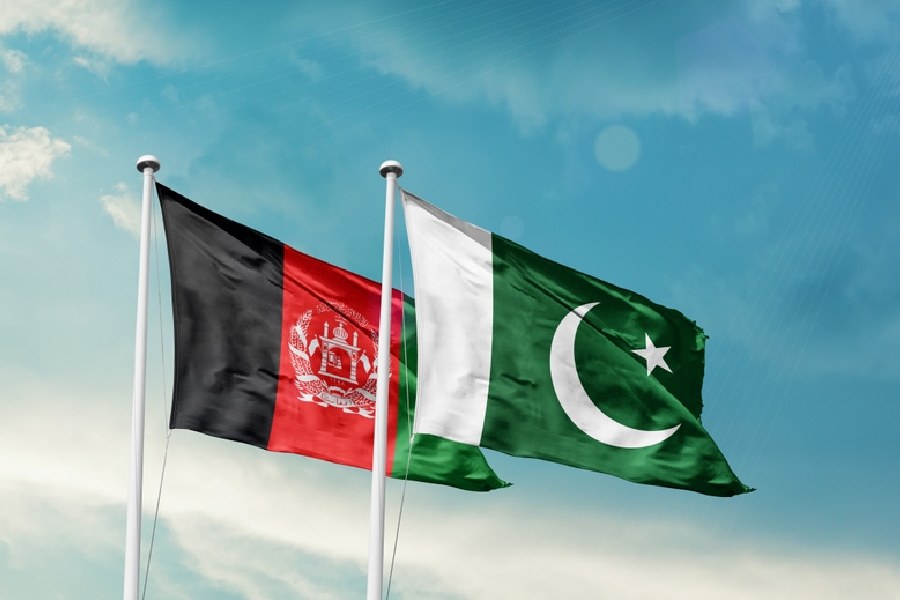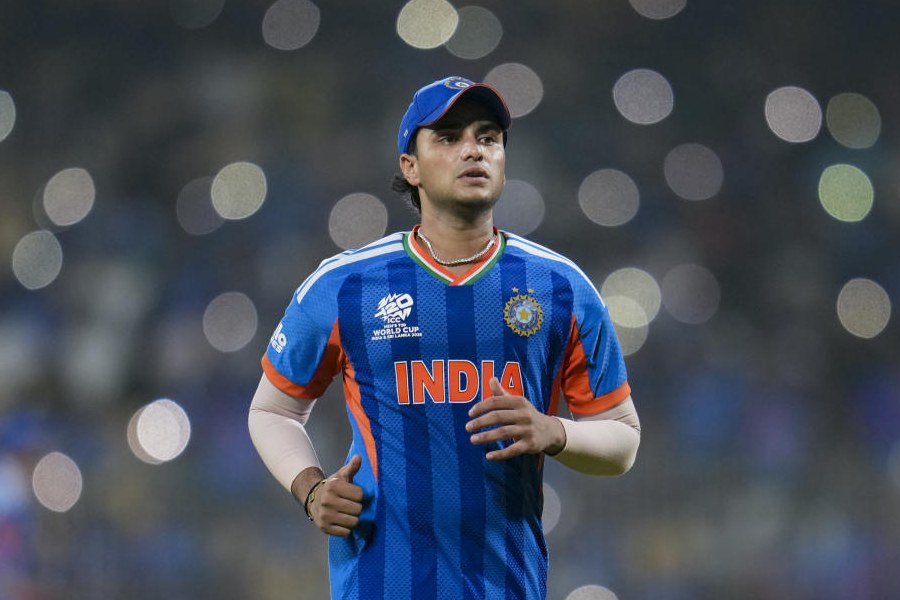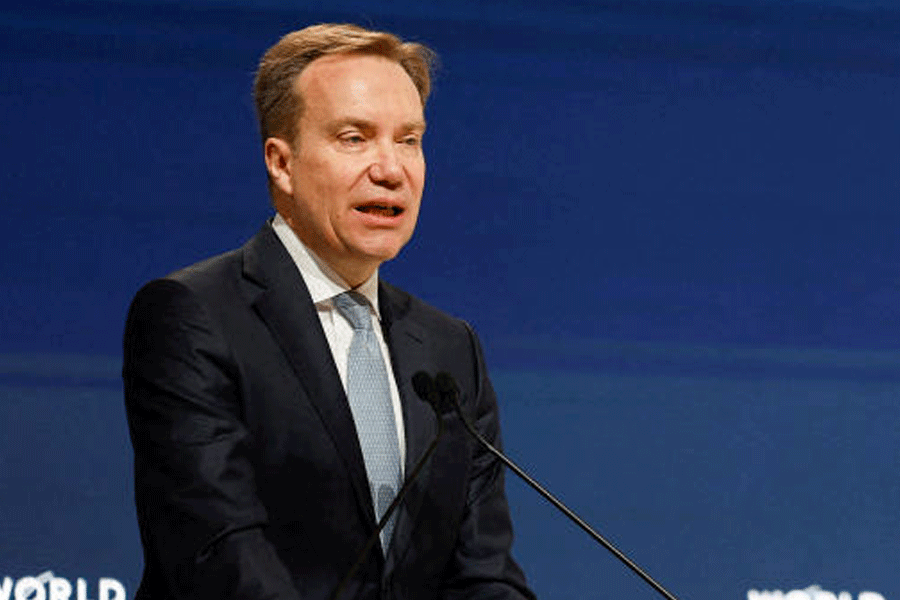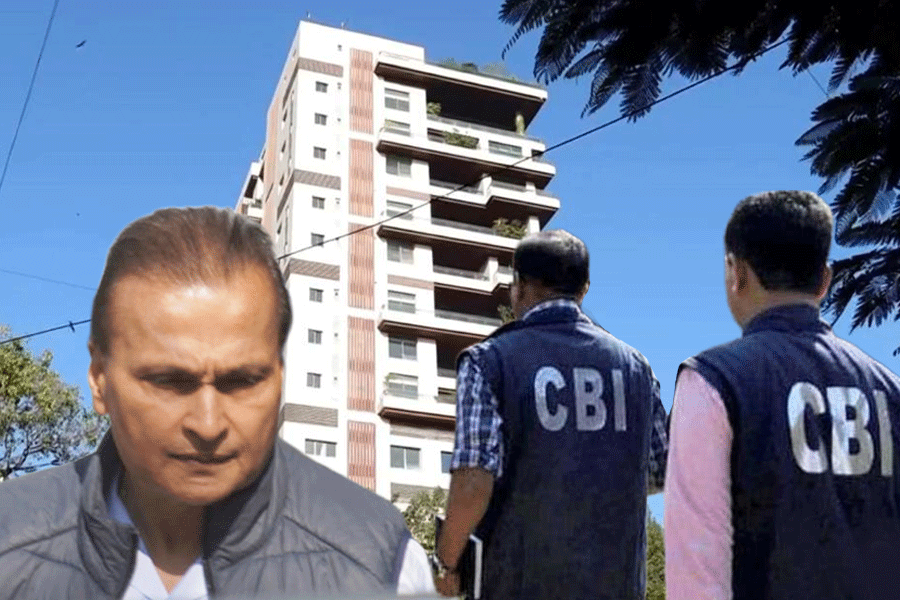US President Donald Trump has dropped a bombshell on the pharmaceutical world, announcing a 100 per-cent tariff on all imported branded and patented drugs, effective 1 October. Generic medicines, the backbone of India’s $20-billion export trade to the U.S., are officially spared. But with the president’s protectionist agenda widening, the worry is that India’s massive generics industry could be the next casualty in Trump’s tariff war.
Trump made the announcement Friday on social media: “Starting 1 October 2025, we will impose a 100 per cent tariff on any branded or patented pharmaceutical product unless a company is building their pharmaceutical manufacturing plant in America.” Only firms already “breaking ground” or under construction in the U.S. will be exempt, he said.
The shock immediately rattled Indian pharma stocks. Sun Pharma plunged as much as 5 per cent to hit a 52-week low of Rs 1,547.25 before closing 2.61 per cent down at Rs 1,585. Biocon fell 2.56 per cent and Aurobindo Pharma slipped nearly 1 per cent. Analysts warned that, while generics are technically safe for now, they could face the heat too.
“President Trump’s tantrums with tariffs are resuming with new imposts on patented and branded drugs,” said Dr VK Vijayakumar, Chief Investment Strategist at Geojit Investments. “India, being an exporter of generics, is unlikely to be impacted by this. But perhaps the president’s next target can be generic drugs.”
The US is India’s single biggest pharmaceutical market, accounting for 35 per cent of exports, or about $10 billion in the financial year 2025. Companies like Sun Pharma, Dr Reddy’s, Cipla, Lupin and Aurobindo all rely on US buyers for up to half their revenues. With margins already razor-thin, any creeping inclusion of generics under tariffs could be devastating.
Rahul Ahluwalia, Director of the Foundation for Economic Development, warned that the industry must prepare for tougher times: “India’s main exports are generics, so immediate impact should not be very high, but this is a troubling sign for future development of the pharma industry in India. We should redouble efforts to get a trade deal with the US and EU to enable our industries to have access to large markets.”
The time frame of the president’s announcement added to the jolt. Trump had previously suggested tariffs would be phased in gradually – starting small and then rising to 150 per cent or even 250 per cent over time. Instead, he dropped a 100-per-cent bomb from day one.
Global pharma heavyweights like AstraZeneca, Roche, Merck, Biogen and Pfizer are already racing to expand U.S. facilities to escape the squeeze. Many Indian firms also have US plants. But experts warn that building plants or acquiring existing ones could take up to five to ten years, analysts warn, and even then, US regulatory hurdles and a shortage of skilled labour loom large.
Pharmexcil Chairman Namit Joshi said: “The proposed tariff on branded drugs is unlikely to have an immediate impact on Indian exports, as the bulk of our contribution lies in simple generics and most large Indian companies already operate US manufacturing or repackaging units and are exploring further acquisitions.”
But industry observers sounded the alarm over a grey area that could drag generics into the tariff net. Analysts warned that while the tariffs primarily target branded drugs, there is uncertainty over whether complex generics and specialty medicines might also be affected.
Complex generics are generic drugs with tricky designs, delivery systems, or formulations that make them much harder and costlier to reproduce. Specialty medicines, meanwhile, are so-called “high-cost, high-care drugs” for complex or rare diseases that ordinary pills cannot usually treat.
Biologics and biosimilars have become hugely important in modern medicine. Biologics, which are made from living cells rather than simple chemicals, drive the cutting edge of medicine. Biosimilars are like generic versions of biologics, not exact copies, but close enough to replace them – helping make life-saving treatments more widely available.
Analysts warn that, should the US decide to extend tariffs to complex generics or biosimilars, the financial hit could be substantial.
Sun Pharma faces direct exposure with Ilumya, its flagship branded psoriasis drug produced outside the US Analysts said tariffs could double costs, though as a chronic therapy, Sun might be able to pass them on to patients.
Pankaj Pandey of ICICI Securities summed up the mood: “Near-term impact of the tariffs is likely to be limited, as India mainly exports generics. Uncertainty still remains over whether complex generics and biosimilars will come under the tariff embargo in the future.”

